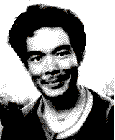|
Melody in Prison: Ngawang Choephel |
||
 |
UPDATE 16 September 1997 |
In a press conference held at Ronnie's Jazz Club in central London, representatives of the international music community assembled to call on Chinese President Jiang Zemin to release fellow musician Ngawang Choephel. Singer Annie Lennox, composer Michael Kamen, and disk jockey Danny Rampling spoke on behalf of over 200 well-known musicians from eight countries, representing many different musical backgrounds, who signed a petition on Ngawang's behalf in a campaign launched by the Free Tibet Campaign in April 1997. Signatories include Paul McCartney, George Harrison, Radiohead, Peter Gabriel, Sting, David Bowie,Yungchen Lhamo, Phillip Glass, and 81 members of the Grand Rapids (Michigan) Symphony Orchestra. The petition will be sent to Jiang Zemin, and a copy delivered to the Chinese Embassy in London.In an emotional plea from Delhi, Ngawang's mother, Sonam Dekyi, told the press conference that so far the Chinese authorities have refused to issue a visa so that she may visit her son. At the age of 61, Dekyi suffers from tuberculosis (endemic among the Tibetan immigrant population of southern India) and from depression that has become chronic since her son's disappearance, and she expresses fears that she may not live much longer.
While it was on this date that Dorji Rinchen witnessed Ngawang being brought into Nyari jail (see Melody in Prison), the exact date or place where Ngawang was taken into custody is not currently known. Chinese authorities have adamantly refused to provide any information regarding his condition or whereabouts during the past two years, and he has not been allowed any visitors or correspondence.
Speaking at the press conference, Alison Reynolds, Director of Free Tibet Campaign, raised hopes that increased pressure on the eve of Jiang Zemin's summit meeting with US President Bill Clinton, scheduled for October, might effectuate Ngawang's release: "The Chinese showed just last week a certain willingness to gain approval by releasing Tibetan prisoners before important international meetings. President Jiang Zemin has an opportunity to generate more goodwill by releasing Ngawang Choephel before his summit with President Clinton next month."
On 11 September, an official of the People's Court in Lhasa announced that they would be releasing 111 Tibetan prisoners early, including two political prisoners who had been imprisoned for counter-revolutionary or "splittist" crimes. This was dismissed as a token gesture by Lobsang Nyandak, Executive Director of the Tibetan Centre for Human Rights and Democracy in Dharamsala, who commented: "The release of any political prisoner is greatly welcomed and encouraged. Unfortunately, China's gesture appears directed more towards deflecting international censure than any real improvement in the situation for the more than one thousand Tibetan men, women and children who are arbitrarily detained in Tibet." He noted: "Of the 111 prisoners released, only two were political prisoners, both of whom had nearly completed their prison terms of four and five years. The reduction in prison terms of the two political prisoners by three and four months is a meaningless gesture on the part of Chinese authorities. There are individuals serving prison sentences of up to 28 years. China should realise that real improvement in the human rights situation in Tibet can be achieved only by respecting the fundamental human rights of the Tibetan people and releasing all prisoners of conscience."
The prisoners are being released from Drapchi Prison, from which an appeal letter signed "From all political prisoners of Drapchi Prison, 10th March 1997" was recently smuggled out of Tibet. In that letter, the prisoners reported: "In prison, cruel and degrading methods of torture are inflicted to extract confessions. These include deprivation of food, water and air; confinement in a freeze room; setting guard dogs onto prisoners and the use of electric cattle prods." In 1996, there were reports of two Tibetan political prisoners dying after torture sessions while in Drapchi prison. Such methods characterize treatment of prisoners of conscience or political prisoners throughout Tibet, and one shudders to imagine what songs Ngawang might be singing today, wherever he might be. He was last reported (in December 1996) to be held in solitary confinement in Sangyip Prison, a labor camp outside of Lhasa.
Lobsang Nyandak reiterated ongoing concerns when he stated, "We call on the People's Republic of China to abide by international standards regarding prison standards and access of prisoners to legal representation and fair trials and to allow open and genuine access to prisons in Tibet." Efforts by the International Red Cross to inspect prisons in China and Tibet have so far been rebuffed. The Chinese release of prisoners may also be viewed as a cynical attempt to deflect criticism by the United Nations Working Group on Arbitrary Detention, which is scheduled to travel to Tibet in October. The Working Group has previously identified specific cases of arbitrary detention in Tibet and called on China to remedy the situation.